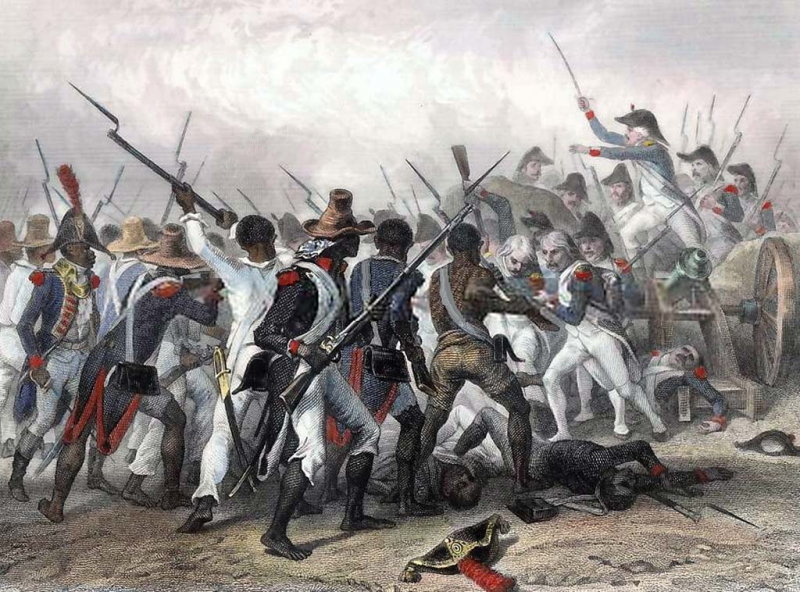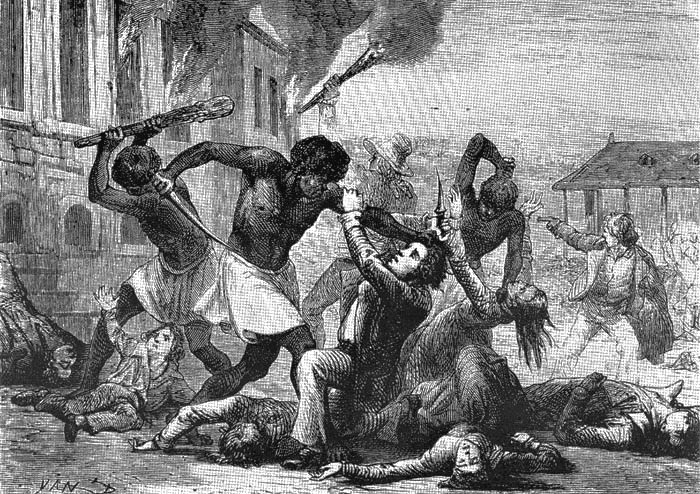Inspired the Haitian Revolution
Haiti was a French colony known as Saint Domínguez during the French Revolution. Slaves at Saint Domínguez rose up in revolt as one of the major effects of the French Revolution, compelling French officials to acknowledge the true significance of their revolution.
On August 22, 1791, the slaves of Saint Domínguez started killing their owners, sparking a civil war that would eventually lead to the Haitian Revolution. Blacks, mulattoes, French, Spanish, and British people all participated in it. Both the French and the Haitians were successful in changing their societies. The French National Assembly emancipated slaves in Haiti on April 4, 1792, and the uprising reached its zenith in 1804. With Haiti's independence in 1804, the Haitian Revolution came to an end. It was the only slave insurrection to result in the establishment of a slave-free state governed by people of color and former slaves.
Change was prompted by the revolutions' activities all throughout the world. The impact of France's reform was greatest in Europe, while Haiti's effect extended to all regions where slavery was still practiced. Haiti is recognized by John E. Baur as the birthplace of history's most significant Revolution.












